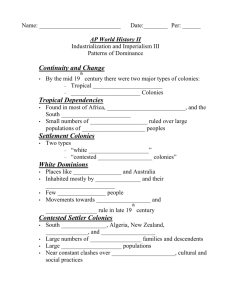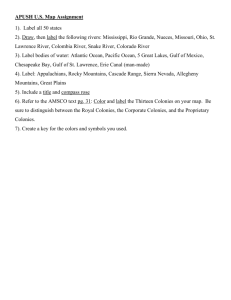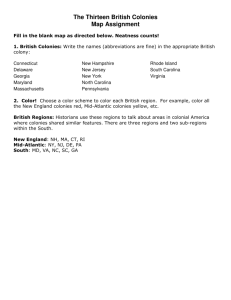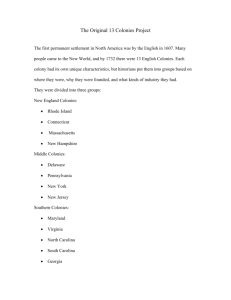The Economic Role Of Colonies
advertisement
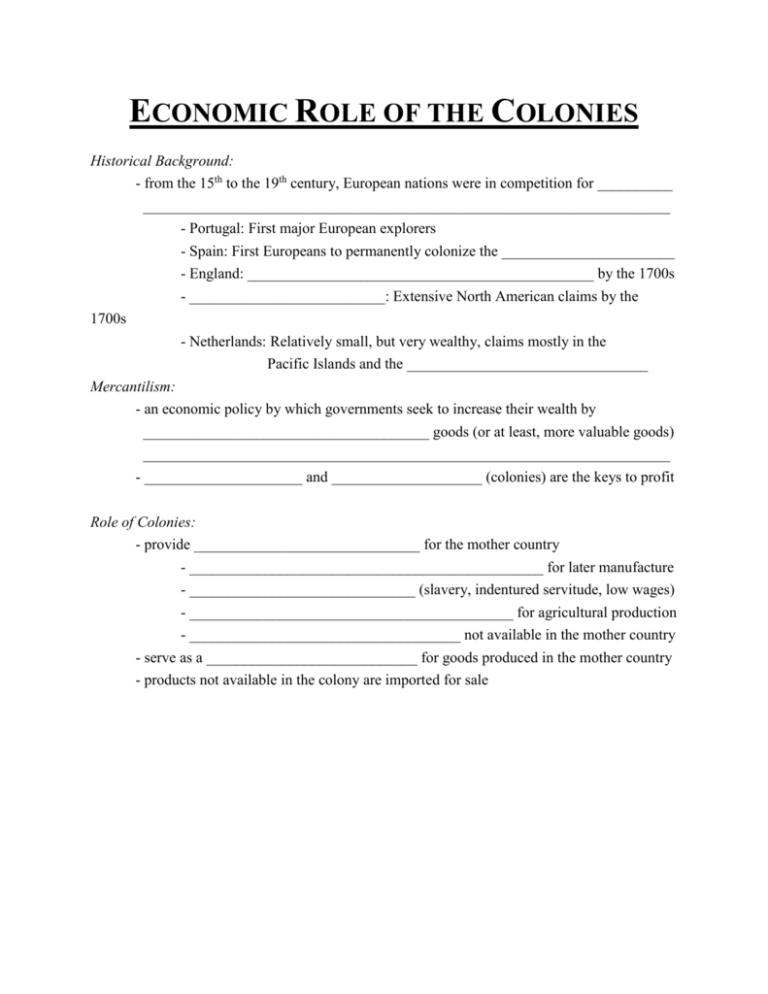
ECONOMIC ROLE OF THE COLONIES Historical Background: - from the 15th to the 19th century, European nations were in competition for __________ ______________________________________________________________________ - Portugal: First major European explorers - Spain: First Europeans to permanently colonize the _______________________ - England: ______________________________________________ by the 1700s - __________________________: Extensive North American claims by the 1700s - Netherlands: Relatively small, but very wealthy, claims mostly in the Pacific Islands and the ________________________________ Mercantilism: - an economic policy by which governments seek to increase their wealth by ______________________________________ goods (or at least, more valuable goods) ______________________________________________________________________ - _____________________ and ____________________ (colonies) are the keys to profit Role of Colonies: - provide ______________________________ for the mother country - _______________________________________________ for later manufacture - ______________________________ (slavery, indentured servitude, low wages) - ___________________________________________ for agricultural production - ____________________________________ not available in the mother country - serve as a ____________________________ for goods produced in the mother country - products not available in the colony are imported for sale Role of Mother Country: - guarantee the ___________________________ (military force) of colonies and settlers - _____________________________________________________ in and out of colonies - businesses set up to ______________________________ for the mother country - distribution company often partially owned by the mother country - mother country often charges ___________________________ on raw materials - often charges ______________ on manufactured goods from the mother country - colonial competition sometimes put out of business by the mother country - merchants may have to sell goods at a marked up price to profit or break even - American Examples: - Navigation Acts - 1621: all ____________________ not used in the colonies must be sent to England where its sale was guaranteed; limited the amount of tobacco to be exported annually. Tobacco prices dropped. - 1660: - _________________: listed goods could only be sold to England - only regulated the most ______________________ British goods - 1663: The Staple Act - all goods going into or out of the colonies must first be sent through England and pay a high tax - effectively _________________________________ the colonies - 1715 - 1750: Salutary Neglect - British policy of ___________________________ in the colonies - Molasses Act of 1733: - tax on non-British molasses (from French/Spanish West Indies) - rarely enforced because of the policy of ____________________ What do you think: is the relationship between the colony and the mother country equitable? Can you see any possible connections to future events? Be sure to explain! ______________________________________________________________________________ ______________________________________________________________________________ ______________________________________________________________________________ ______________________________________________________________________________ ______________________________________________________________________________ ______________________________________________________________________________ ______________________________________________________________________________ ______________________________________________________________________________

